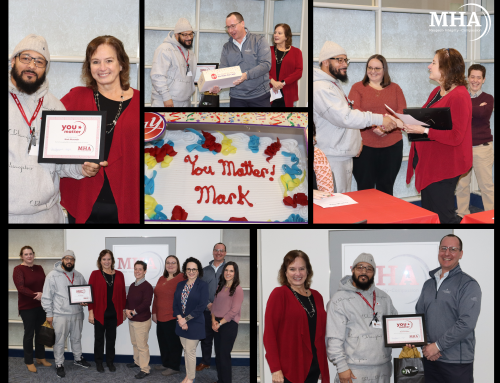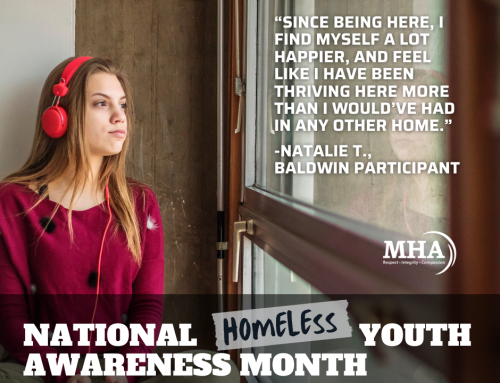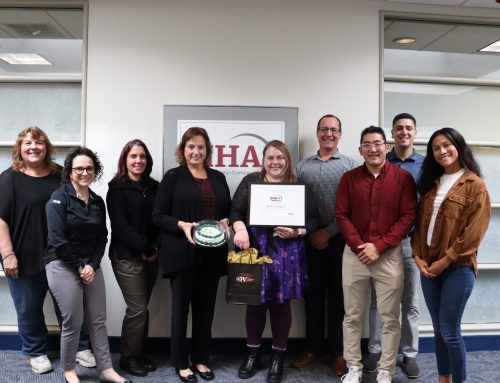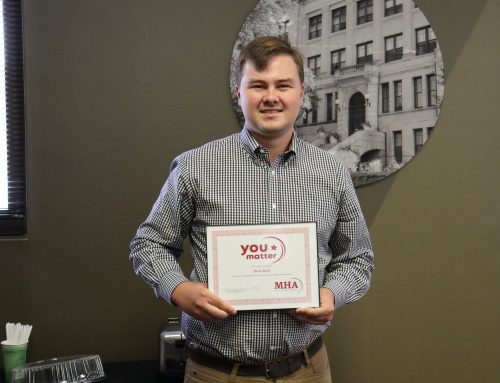
Recent estimates indicate that on any given day in Massachusetts nearly 500 unaccompanied young people, ages 18 to 24, experience homelessness. This is a situation that MHA is helping to address with federal grant money received through its work with the Continuums of Care in Hampden County and the Three County Continuum of Care administered by Community Action of Pioneer Valley which serves Hampshire, Berkshire and Franklin County.
The more than $700,000 in funding over a 24-month period is for two, recently launched MHA projects that form a continuum of services to support the needs of homeless youth. One provides permanent supportive housing, with individualized case management, for eight beds annually in Springfield as well as eight in Greenfield, and includes subsidies so participants pay only a third of their income for rent.
The other, referred to as a Housing Navigation and Rapid Rehousing program helps youth and young adults navigate services to connect with short-term housing resources. It covers rental and related expenses for up to two years for six beds annually.
“We see homelessness all over this country,” said Olivia Bernstein, MHA’s Clinical Director of Homeless Services. “As a Western Mass region, we are starting to address this in a different way. This means providing funds and resources in order to maintain housing. We see a lot of youth at risk for homelessness who may be living with a family member or couch surfing in an unsafe place or they are out on the street with many identifying as LGBTQ+.”
In helping to meet the housing needs of homeless youth, Olivia, who is a licensed certified social worker, sees MHA “setting them up for success.”
“We partner with youth to be their support, be it learning life skills, like cooking, cleaning, paying bills and managing their household budget,” Olivia said. “A lot of youth don’t have these skills. They are just starting out. We want to be the first person they call when they need something.”
She cites one Springfield participant “who was in shelter and on the street for quite a long time and has, and continues to have, significant mental health challenges.”
“We were able to get her an apartment that she loves and support her while she receives treatment,” Bernstein said.
Olivia said the current market of “high rents and limited available housing” has forced MHA “to get creative.” This approach resulted in three youth, strangers to each other but all being served by the permanent supportive housing project, agreeing to apartment share.
“All have experienced so much in their young years and needed a stable place to land,” said Olivia who knew “as a kid” she wanted to help others. “We were able to get a three-bedroom apartment from a willing landlord and to furnish it. It is beautiful and they are so excited. They have settled in to what provides not only physical space but also mental, emotional space. One of them is pursuing a career in health care, one of them is getting his bachelor’s degree in political science and the housing makes it much easier to pursue these goals.”
Donations to MHA throughout the year, as well as on Giving Tuesday, Nov. 30, that are being matched up to $5,000 by Pioneer Valley Financial Group, support programs and also provide for the basic needs of those served by MHA that can range from clothing to furniture to toiletries and laundry detergent.
To donate on Giving Tuesday, please visit www.mhainc.org/donate





